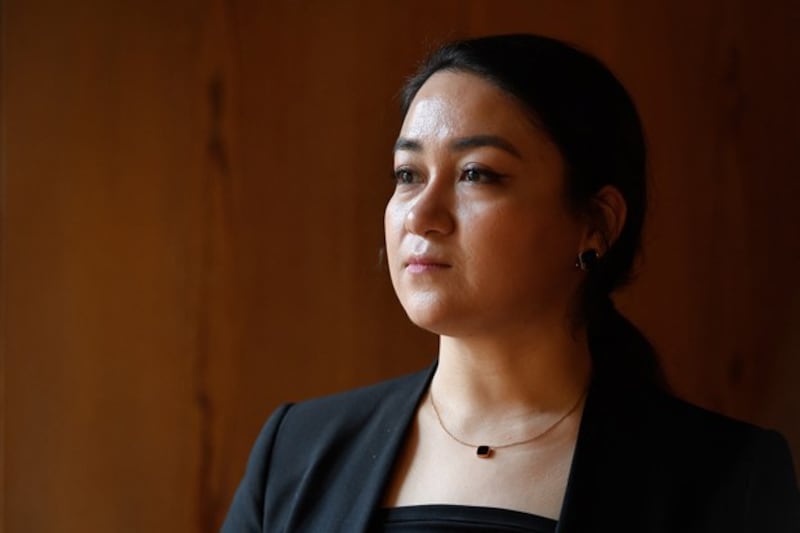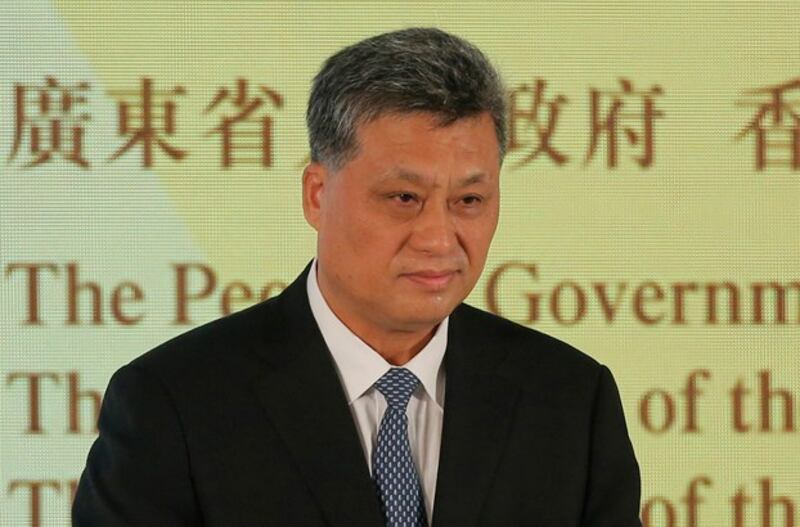A delegation from the U.N.’s International Labor Organization made an unannounced visit to China’s Xinjiang region last week, saying it discussed the issue of Uyghur forced labor but drawing criticism from rights groups that said it should have consulted with them beforehand.
The organization engaged in “technical discussions about the implementation of China’s laws and practice of ratified international labor conventions concerning discrimination in employment and occupation, as well as forced labor,” the ILO told RFA in a statement on Tuesday.
The ILO did not indicate if delegates could freely inspect factories or talk freely with Uyghur or other Muslim workers in these factories. The agency also did not disclose the dates of the visit or the agenda.
Chinese media reports said Ma Xingrui, Xinjiang’s Communist Party secretary, and Erkin Tuniyaz, chairman of Xinjiang Uyghur Autonomous Region, met with the ILO delegation members, and that Ma denied the existence of human rights violations and forced labor in the region.
Two conventions that China ratified on employment discrimination in 2006 and on forced labor in 2022 went into force on Aug. 12, the ILO said. As part of its mandate, the ILO provides technical advisory services to its member states on the full implementation of ratified labor conventions.
Corinne Vargha, director of the ILO’s International Labor Standards Department, led the recent delegation to the region a year after the U.N. human rights office issued a damning report on Xinjiang.
The August 2022 report concluded that serious human rights violations had been committed in the context of the Chinese counter-terrorism and counter-extremism strategies, and that China’s detention of Uyghurs and other Turkic minorities in Xinjiang may constitute crimes against humanity.

Help conceal?
The ILO’s trip didn’t sit well with Uyghur advocacy and human rights groups, who have lambasted the United Nations for inaction on China’s repression of Uyghurs and other Turkic minorities in Xinjiang, despite credible evidence of severe abuses, including mass detentions and forced labor.
The groups criticized the ILO because they said the visit would help China conceal its crimes in Xinjiang.
Jewher Ilham, forced laborprojectcoordinator at the Worker Rights Consortium, a labor rights monitoring organization based in Washington, D.C., told RFA on Tuesday that such visits are acceptable only when delegates make it clear that they can speak to Uyghurs freely and without any government influence to observe any discrimination, forced labor or abuse in the workplace.
Gheyur Qurban, director of the Berlin office of the World Uyghur Congress, said Chinese officials did not likely allow the ILO delegates to meet freely with Uyghurs and that it would use the visit to bolster its own propaganda.
When former U.N. High Commissioner for Human Rights Michelle Bachelet visited Xinjiang in May 2022, Chinese officials did not permit her to visit labor camps or have open discussions with Uyghurs facing discrimination and threats, Qurban said.
“Therefore, I believe that the ILO delegation wouldn’t have had the opportunity to investigate forced labor because the Chinese government doesn’t want to reveal the reality,” he said. “They intimidate and threaten Uyghurs, forcing them to lie out of fear. Consequently, the delegation would likely have seen a staged scenario and, of course, be influenced by what they observed.”

Very hard to verify
The ILO delegation’s visit was the first time that representatives of a U.N. organization visited Xinjiang since Bachelet’s trip.
Sarah Brooks, Amnesty International's deputy regional director for China, told RFA on Tuesday that China’s refusal to allow international observers let alone human rights monitors into the Xinjiang region has really restricted the ability to independently verify allegations of forced labor.
She also said Beijing should fully implement other recommendations made in the report by the U.N.'s human rights office now that the ILO has completed its mission to Xinjiang.
“We would see this as one box checked, and that’s promising,” Brooks said. “But this being said, there are dozen other recommendations in the OHCHR [Office of the High Commissioner of Human Rights] report that are equally if not more deserving of attention and action by the Chinese authorities.”
These recommendations include a review of legal frameworks on national security on counter-terrorism that Amnesty has documented are regularly used to target Uyghur and other major majority Muslim communities, she said.
They also include the release of arbitrarily detained Uyghurs and the provision of information to and channels of communication for Uyghurs around the world to reunite with their loved ones in Xinjiang, Brooks said.
In a February report, the ILO criticized China’s state-sponsored “relief from poverty” and “progressive employment” programs implemented in Xinjiang, emphasizing widespread employment discrimination and forced labor.
Translated by RFA Uyghur. Edited by Roseanne Gerin and Malcolm Foster.
